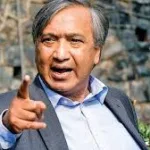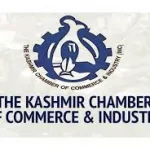Children’s Day, celebrated on November 14, is recognized across India to increase awareness of the rights, care, and education of children. The day is also held as a tribute to India’s First Prime Minister, Jawaharlal Nehru. Fondly known as “Chacha Nehru” among children, he advocated for children to have fulfilled education. Jawaharlal Nehru considered children as the real strength of a nation and foundation of society. The nation usually celebrates Children’s Day with educational and motivational programs held across India, by and for children. India celebrated Children’s Day on the birth anniversary of Pandit Nehru for the first time on 14th November 1957, following a government edict on official notice. Since then, 14th November has been observed as Children’s Day in India every year.
Children’s Day has a great significance; it is a day to create awareness among people about the importance of the rights of education for the children. Education is the foundation of a child’s future well-being. Children’s education creates various opportunities to help them live better lives. It can also help shape the society at large. With the right education, a child can help the country develop and progress at a faster pace. Child rights education promotes the vision articulated in the CRC Preamble that “the child should be fully prepared to live an individual life in society, and brought up in the spirit of the ideals proclaimed in the Charter of the United Nations, and in particular in the spirit of peace, dignity, tolerance, freedom, equality and solidarity”. Child rights education is seen as an essential tool for changing how children’s rights are perceived and applied in society. It aims to build the capacity of rights-holders, especially children, to claim their rights and the capacity of duty-bearers to fulfill their obligations. It helps adults and children work together, providing the space and encouragement for meaningful participation and sustained civic engagement.
Education is a basic human right that works to raise men and women out of poverty, level inequalities and ensure sustainable development. But worldwide 244 million children and youth are still out of school for social, economic and cultural reasons. Education is one of the most powerful tools in lifting excluded children and adults out of poverty and is a stepping stone to other fundamental human rights. It is the most sustainable investment. The right to quality education is already firmly rooted in the Universal Declaration of Human Rights and international legal instruments, the majority of which are the result of the work of UNESCO and the United Nations. The right to education is a human right and indispensable for the exercise of other human rights. Quality education aims to ensure a fully-rounded development of the child. It is one of the most powerful tools in lifting socially excluded children and adults out of poverty and into society. UNESCO data shows that if all adults completed secondary education, globally the number of poor people could be reduced by more than half.
Education has been regarded in all societies and throughout human history both as an end in itself and as a means for the individual and society to grow. Its recognition as a human right is derived from the indispensability of education to the preservation and enhancement of the inherent dignity of the human person. Several international, regional and national legal instruments recognize the right to education. Education should be seen as an equalizing force. It should not only make provisions and physical resources required for imparting education but actually making quality education available on equitable basis. Education should bring about equality in society.
The Constitution (Eighty-sixth Amendment) Act, 2002 inserted Article 21-A in the Constitution of India to provide free and compulsory education of all children in the age group of six to fourteen years as a Fundamental Right in such a manner as the State may, by law, determine. The Right of Children to Free and Compulsory Education (RTE) Act, 2009, which represents the consequential legislation envisaged under Article 21-A, means that every child has a right to full time elementary education of satisfactory and equitable quality in a formal school which satisfies certain essential norms and standards.
The Right to Education (RTE)
The Right to Education (RTE) Act provides for the Right of children to free and compulsory education till completion of elementary education in a neighborhood school. It clarifies that ‘compulsory education’ means obligation of the appropriate government to provide free elementary education and ensure compulsory admission, attendance and completion of elementary education to every child in the six to fourteen age group. ‘Free’ means that no child shall be liable to pay any kind of fee or charges or expenses which may prevent him or her from pursuing and completing elementary education. It makes provisions for a non-admitted child to be admitted to an age appropriate class. It specifies the duties and responsibilities of appropriate Governments, local authority and parents in providing free and compulsory education, and sharing of financial and other responsibilities between the Central and State Governments.
It lays down the norms and standards relating inter alia to Pupil Teacher Ratios (PTRs), buildings and infrastructure, school-working days, teacher-working hours. It provides for rational deployment of teachers by ensuring that the specified pupil teacher ratio is maintained for each school, rather than just as an average for the State or District or Block, thus ensuring that there is no urban-rural imbalance in teacher postings. It also provides for prohibition of deployment of teachers for non-educational work, other than decennial census, elections to local authority, state legislatures and parliament, and disaster relief. It provides for appointment of appropriately trained teachers, i.e. teachers with the requisite entry and academic qualifications. It prohibits (a) physical punishment and mental harassment; (b) screening procedures for admission of children; (c) capitation fee; (d) private tuition by teachers and (e) running of schools without recognition. It provides for development of curriculum in consonance with the values enshrined in the Constitution, and which would ensure the all-round development of the child, building on the child’s knowledge, potentiality and talent and making the child free of fear, trauma and anxiety through a system of child friendly and child centered learning. All schools covered under the Right to Education Act 2009 are obligated to constitute a School Management Committee comprising of a head teacher, local elected representative, parents, community members etc. The committees have been empowered to monitor the functioning of schools and to prepare a school development plan. The Right to Education Act 2009 mandates for all private schools to reserve 25 per cent of their seats for children belonging to socially disadvantaged and economically weaker sections. This provision of the Act is aimed at boosting social inclusion to provide for a more just and equal nation.
According to the ASER 2020 report, girls (11 per cent) and boys (8.8 per cent) in the age group of 15-16 from the rural areas are out of school, indicating that issues such as child marriage and child labour may once again be on the rise. For a family under economic stress, it becomes a deterring factor if their ward does not achieve the appropriate learning outcomes. The focus shifts to engaging the child in economic activities since spending time on education would not reap any incentive. A study suggests that unless and until there is considerable improvement in the financial status of households and change in the social attitudes of parents, achieving the goal of universalization of school education will remain a major challenge for India. A collective effort by various stakeholders is the key to increasing the quality of education in India, enabling every child to have an equal chance for success in the continuity of education. There is an opportunity for collaboration among various stakeholders to enhance school infrastructure and mobilize communities, parents, and faith leaders to provide better social and emotional support to children.
(Author is a regular writer for this newspaper and can be reached at [email protected])




